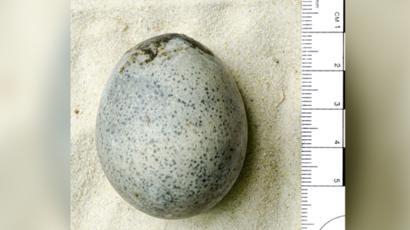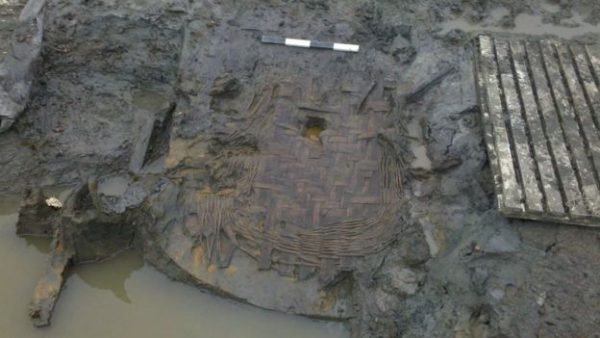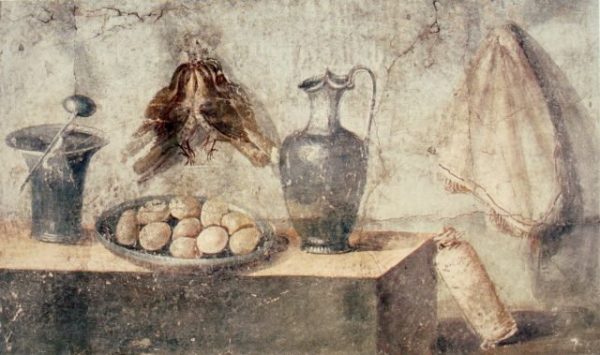Archaeologists Discovers Intact Roman Chicken Eggs In Great Britain
For nine years, Oxford Archeology, an independent archeology firm in Oxford, Great Britain, has been working on an archeological site at the construction of the Berryfields housing and community development project near Aylesbury in the south of England.
What they found in a pit full of water near a Roman road was amazing: a very rare wooden Roman basket made of oak and willow filled with four chicken eggs.
Three of the eggs were particularly fragile and accidentally broken releasing a horrible stench, but one remains intact making it the only complete egg from Ancient Rome in Great Britain according to Oxford Archaeology.
Eggs represent many things to both the Romans and modern people as well. Of course, fertility is a major belief as is rebirth.

The gods, Mithras and Mercury were also associated with eggs. Archaeologist Edward Biddulph, Senior Project Manager, believes the eggs could have been placed in the pit as an offering in a ritual, a funeral, or other religious ceremony.
Scientists believe the pit was created in the first or second century as a way to ferment malt to use for brewing beer but was later turned into a place for offerings to the gods. The pit was no longer used by the fifth century and was turned into farmland.
Also found in the pit were leather shoes, wooden bowls, tools, a mirror and some pots.

A piece of a Roman harness for a horse and a belt buckle were discovered and evidence of posts for a wooden bridge that once crossed the River Thame, a tributary of the well-known, larger River Thames that branches off near Oxford.
Biddulph, who specializes in managing post-excavation projects and the paperwork involved, has co-written a book about the finds at this site.
According to Business Intelligence, he believes that, at one time, the Berryfields area was an intersection of several well traveled roads and at its pinnacle included shops and trade offices, mostly due to the amount of coins found at the nearby Roman settlement of Fleet Marston.
The book, Berryfields: Iron Age Settlement and a Roman Bridge, field system and settlement along Akeman Street near Fleet Marston, Buckinghamshire, was co-written with Kate Brady, project officer at Oxford Archeology; Andrew Simmonds of Oxford Archeology; and Stuart Foreman, Senior Project Manager at Oxford Archaeology.

It discusses the finds at the pit and the settlement along Akeman Street, a surviving Roman road that runs from Gloucester curving to the north and passing through Aylesbury and then southeast to London and can still be seen in many spots. The book is available at Oxbow Books.
According to archeologist Kristina Killgrove on Forbes, another intact egg from Roman times was found in Rome in a burial site at Castellaccio Europarco.
It was clasped in the hand of a three or four year old toddler; but, unusually, the child was buried face down.
In the Vatican necropolis a baby from about fifty to one hundred fifty AD was found buried with an egg, although this child was discovered facing up and the egg was found broken.
Burials at this time were both pagan and Christian, and the egg played a large part in the mythology of both.
In early Christian burials, the egg has been representative of the idea of rebirth since the life, death, and resurrection of Jesus and is the reason for the Easter egg.
Pagans believed they could cast spells as well use them as protection from spells cast by others.
Another Article From Us: The Anglo-Saxon Ghost Ship is Being Recreated in England
Castel dell’Ovo (Castle of the Egg) on the island of Megaride in the Bay of Naples in Italy was named for a legend in which the ancient poet, Virgil, buried an egg where the castle is now located and proclaimed that when the egg breaks, the castle and Naples will fall. So far, it seems to have held together rather well.





